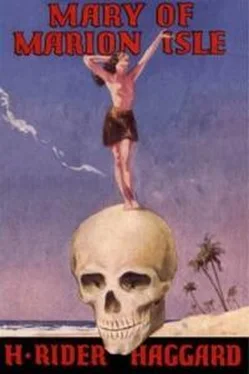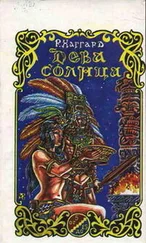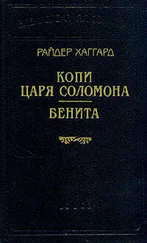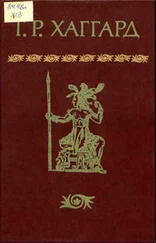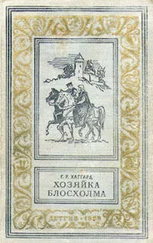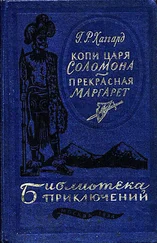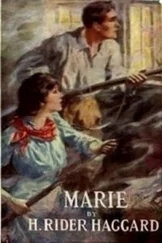After this Andrew was more comfortable than ever in those lodgings and lived like a fighting–cock. In time he slowly awoke to the fact that his bills were singularly small for the amount of food that he consumed, and on investigation, discovered that Mrs. Josky was practically supporting him. Then there was a row, also there were tears and he threatened to go away. He insisted that she should produce books to show the cost of what she bought for him. Mrs. Josky, whose leading characteristic was obstinacy, refused to do anything of the sort and even accused herself of theft in the sense of feeding herself and her child out of his provisions. At last they compromised. He paid more for his board; Mrs. Josky concealed the books and he lived even better than he had done before. Moreover, all his clothes were pressed and mended and, although he knew it not, some of his undergarments, such as shirts, were made for nothing. No wonder he had declared to Clara that £200 a year was wealth to an East End doctor!
Andrew arrived at Justice Street at about half–past four, the time at which he was accustomed to return from the hospital and have tea. The pretty little Laurie, who loved him almost as much as her mother did, was, as usual, looking out for him from the doorstep, and seeing him while yet a long way off, called out to her mother in the back regions, informing her of his advent. Mrs. Josky called back that all was ready, and proceeded to kill the fatted calf by breaking two fresh eggs, which were expensive just then, into the frying–pan. To be accurate, she broke three, for having conceived suspicions of Number Two, she put it aside for her own consumption, rather liking the taste of straw, as she explained to Laurie.
Andrew arrived, kissed Laurie according to the rule, searched for and found in his velveteen coat a little packet of chocolate creams of which she was extremely fond, and went up to his room to tidy himself for, as it happened, he had an engagement that afternoon. When he came into the sitting–room, after washing his hands and brushing his hair, he was met by Mrs. Josky bearing a spotless tray with a real china teapot that she had obtained from some one in temporary difficulties in exchange for a pair of second–hand boots, with a cup and muffin dish full of hot buttered toast to match, and followed by Laurie, who supported in her thin little hands the dish with the fried eggs.
"Good gracious! Mrs. Josky," he said, "I don't want all that. Besides, I am going out to tea."
"Then you should have said so earlier," she replied with firmness, adding, "not but what I guessed it when I saw that letter in a lady's writing this morning; also that you had bought a new toothbrush which you didn't want."
"Your intuition is wonderful, Mrs. Josky, but please take away those eggs. Laurie can eat them."
"I should like to see her do it," replied Mrs. Josky darkly, "teaching the child to steal my lodger's food, indeed. Look here, Mr. West, either you eat those eggs or they go straight into the dustbin, which you know would be a wicked waste. Come now," she added in soothing tones as though she were addressing an invalid off his feed, "you know you want them with all your hard work, passing examinations and such, and you, as I believe, still growing."
"I can't and I won't," said Andrew. "I've had a gigantic lunch."
"You can and you will," replied Mrs. Josky with decision as she drew a chair to the table.
Then Andrew sat down and ate the eggs under her stern eye, also the buttered toast, for his appetite was excellent, while she poured out the tea which cost more per pound than she would have cared to tell him. No wonder he always declared there was no tea like Mrs. Josky's.
"Where are you going to your next tea, Mr. West?" she inquired as she gathered up the plates.
"To Doctor Watson's," he answered, "whose assistant I shall be if I get through."
"Oh! to Miss Watson's, are you. I thought it was her writing on the letter. Well, there's no denying that she's a beautiful young woman, for I've seen her several times at church and treats and such like, of the sort that young gentlemen like to have tea with, not minding how it's made, though a bit of a fool I should think, if they do call her the Whitechapel Rose."
"Great Scot! what a name," said Andrew, "though as a matter of fact she is named Rose. But why do you say she is a bit of a fool, Mrs. Josky?"
"Just because one woman knows another," she replied with a mysterious shake of the head. "Also because God Almighty don't give everything all at once. If a girl is as lovely as all that outside, you mark my words she ain't got nothing inside. Look at me," she added, thrusting forward her angular and kindly little face with the brown eyes in which humour twinkled, "I ain't no beauty, am I? Whatever Josky, being after all a man, could see in me I never could guess—but I'm pretty good at cooking, and not so bad at a deal, either."
"There's something in the argument," reflected Andrew. "I've seen it exemplified in very handsome men. But, as regards Miss Watson, I had formed rather a different opinion. Well, well, we shall see."
"Yes, Mr. West, I dare say you will," remarked Mrs. Josky with emphasis, and departed carrying the tray.
When she had gone Andrew retired to his bedroom and tidied up again. Looking at his hair he recognized that it was long and regretted that recently he had found no time to have it cut. Now it was too late. Suddenly he remembered an ancient pot of pomade, at least he thought it was pomade, which, amongst other débris removed from his mother's house, stood in a cupboard in a corner. He found it. Inspection was not very satisfactory and it smelt. After all, was it pomade? At this stage in its career nothing short of analysis could tell. Still, in his anxiety to curb his rebellious locks he risked it, only to discover that it was decayed ointment which as a lad he had used upon his hands after they had been chafed by over–rowing on the Thames. That was when it was already on, and nothing short of prolonged shampooing would have removed it. Next, after reflection, he changed the red tie for a brown one that was somewhat less seedy, slipping over it a beautiful antique gem in an eighteenth–century setting that represented Venus rising from the sea, which had come to him from his father. About the velveteen coat he hesitated, but finally decided to leave it alone because he could not be bothered to hunt for another.
From all of which things it will be gathered that Andrew desired to look his best at the tea–party to which he was going, an impulse that had not overtaken him when departing to lunch with his grand relatives at Cavendish Square. Near the front door he met Mrs. Josky who eyed him with suspicion, remarked that he had on his Sunday tie, and sniffed.
"What's the matter?" asked Andrew.
"Well, Sir," she said, "I did think something might have gone wrong with those drains again, there was such a smell down that back yard, and now it seems to have come here too."
"Oh! I know," remarked Andrew guiltily. "I found some stuff that had gone bad and threw it away."
"Indeed, then it's a pity, Sir, that you threw it on to your hair first."
After this Andrew fled, leaving Mrs. Josky still sniffing on the door–step.
Holding his hat in his hand, for he knew the cause of Mrs. Josky's suspicions and wished to air his head, Andrew pursued his way through the devious streets of Whitechapel, till he came to a remote region in the neighbourhood of the river. Here in some bygone generation there had been houses of importance, occupied no doubt by prosperous tradesmen or merchants of the day. One of these, a red brick Georgian mansion of some pretensions, stood among a mass of mean dwellings that, as the value of land increased, had been built on what were once its extensive gardens, whereof nothing remained except a desolate little patch of ground in front of the house, upon which stood the foundation walls of a long–departed greenhouse. This dwelling, which was still known as Red Hall probably from its colour, was now the abode, private and professional, of Dr. Watson, a very eminent man in his way, but one whose career had been injured by his peculiarities and his open, often ill–timed, advocacy of extreme Socialistic views.
Читать дальше
Конец ознакомительного отрывка
Купить книгу
